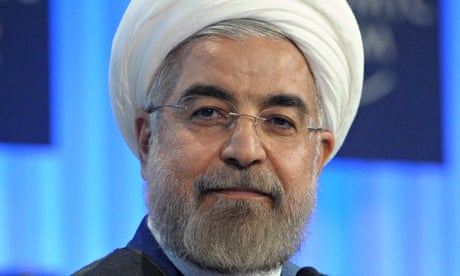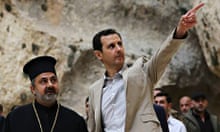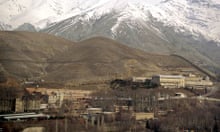Tehran University's outspoken professor, Sadegh Zibakalam, was asked recently in a heated debate on national radio why he fought to overthrow the Shah and endured two-year jail sentence.
Furious about Zibakalam's views on foreign policy, especially his support for normalising ties with the US, the hardline MP Hamid Rasaei sought to embarrass him by reminding the true origins of his political life - as a political prisoner under the US-backed Shah - and what he had stood for then. Rasaei said: "This Zibakalam is different from the one from before the revolution."
Zibakalam turned the tables on him. He answered: "[Under the Shah] I went to jail so that we wouldn't have political prisoners any more. So that we would have free elections. So that we would have freedom of press. So that Evin could be shut down."
Thirty-five years since Iranians deposed the late Shah, Tehran's notorious Evin prison remains open despite post-revolutionary hopes for it to become a museum displaying the despotic powers of the Savak, Mohammad Reza Pahlavi's brutal secret police.
It is today home to a large group of people held on political grounds or because of their ethnic or religious background. They are Iran's prisoners of conscience, some of whom we identified here last year.
Iran's judiciary often blurs reality by claiming those behind bars in Evin's political wings are held under security charges, such as vague accusations of "acting against the national security" or "propaganda against the Islamic republic". "We don't have political prisoners in Iran," Javad Larijani, the head of the state-run human rights council, has said.
Earlier this month, Evin's ward 350 was scene of extreme violence as intelligence officers subjected inmates to humiliating physical abuse, forcing them to run a gauntlet of guards armed with batons. Some of them, including the prominent laywer Abdolfattah Soltani, had their heads shaved in a move activists saw as intended to hurt their dignity. In solidarity with the prisoners, many Iranians launched a campaign posting their pictures online with their heads shaved.
Iran's president, Hassan Rouhani, has been mute about the unprecedented use of force in Evin, even though his office met a number of prisoners' relatives.
In fact, Rouhani has maintained a policy of not publicly addressing human rights issues, some of which have put people like Zibakalam at odds with the values they fought for at the establishment of the Islamic republic – which was supposed to be a freer and fairer country than that ruled over by the Shah.
After Rouhani's win in the election, there was a glimpse of hope as a group of activists, including the celebrated lawyer Nasrin Sotoudeh, were released from Evin. But as we come close to the end of Rouhani's first year in office, that promise of change has faded.
Rouhani might have limited powers but human rights violations have continued under his presidency, as highlighted by the UN secretary-general, Ban Ki-moon, last month. Iran continues to execute convicts at staggering rates. Arbitrary detention and unfair trials are rife. Discrimination against minorities, including Bahais and homosexuals, mistreatment of political prisoners, and restrictions on freedom of expression, are common. This week authorities closed down Ebtekar, the third reformist newspaper to be shut down under Rouhani. Last week, they arrested Hossein Nouraninejad, a political activist.
Seven journalists and bloggers, including Hossein Ronaghi Maleki, were also among those beaten up in Evin. Opposition leaders, Mir Hossein Mousavi and Mehdi Karroubi, have been held without trial under house arrest since February 2011.
The violence in Evin, which left dozens with broken ribs, wounds and swollen bodies, also underscores the challenges Rouhani faces from others in the Iranian state. Within hours of members of his office meeting prisoners' families, Iran's judiciary replaced the head of state prisons and appointed him to a yet more senior position, a slap in the face for the president.
If Rouhani has been impervious to the kind of messages hardliners want him to hear, there was yet another sign this week of their intent to pressure him with the release of a documentary called I Am Rouhani. Seemingly produced to undermine his power, it depicts him as too soft on the country's "enemies", especially the US. It showed how far Rouhani's opponents are prepared to go to challenge him.
There are lessons Rouhani should learn from Mohammad Khatami, who is often criticised to have done and said too little, too late during his own reformist presidency. Rouhani should learn Khatami's mistakes, trying to protect perople's rights while he still has the massive support given to him during last year's election.
It's time he broke his silence on human rights in Iran.






